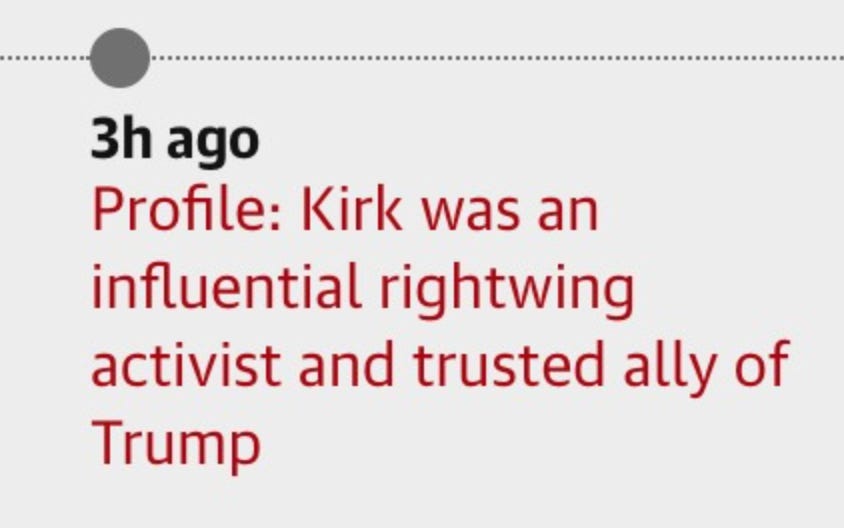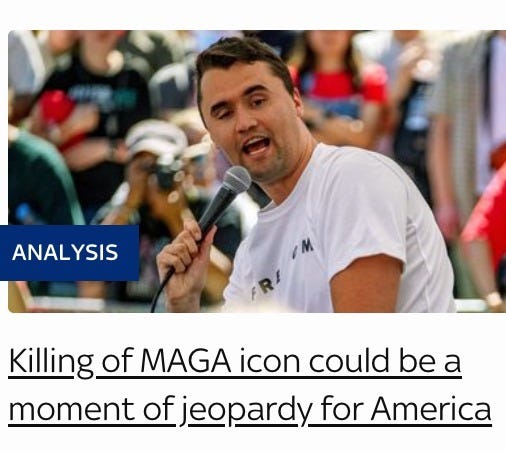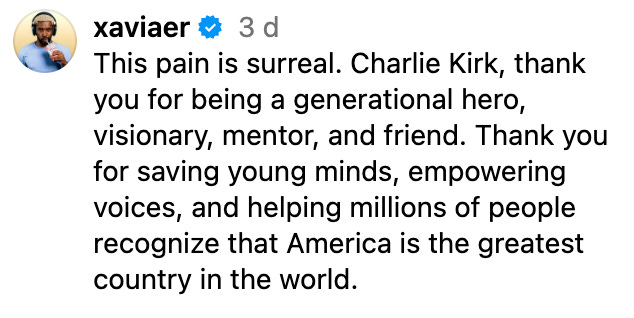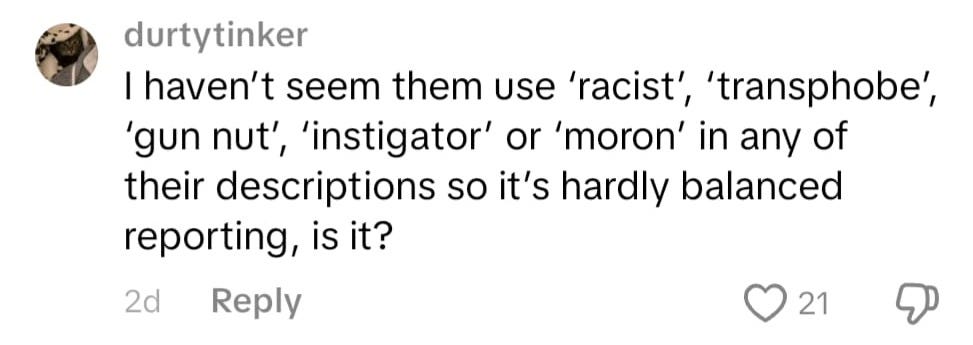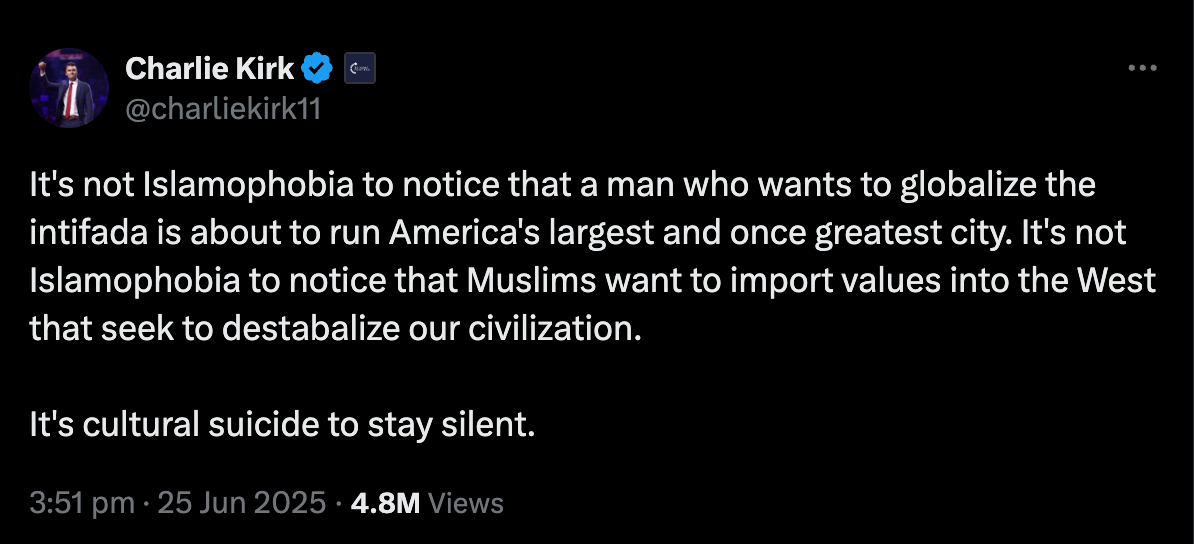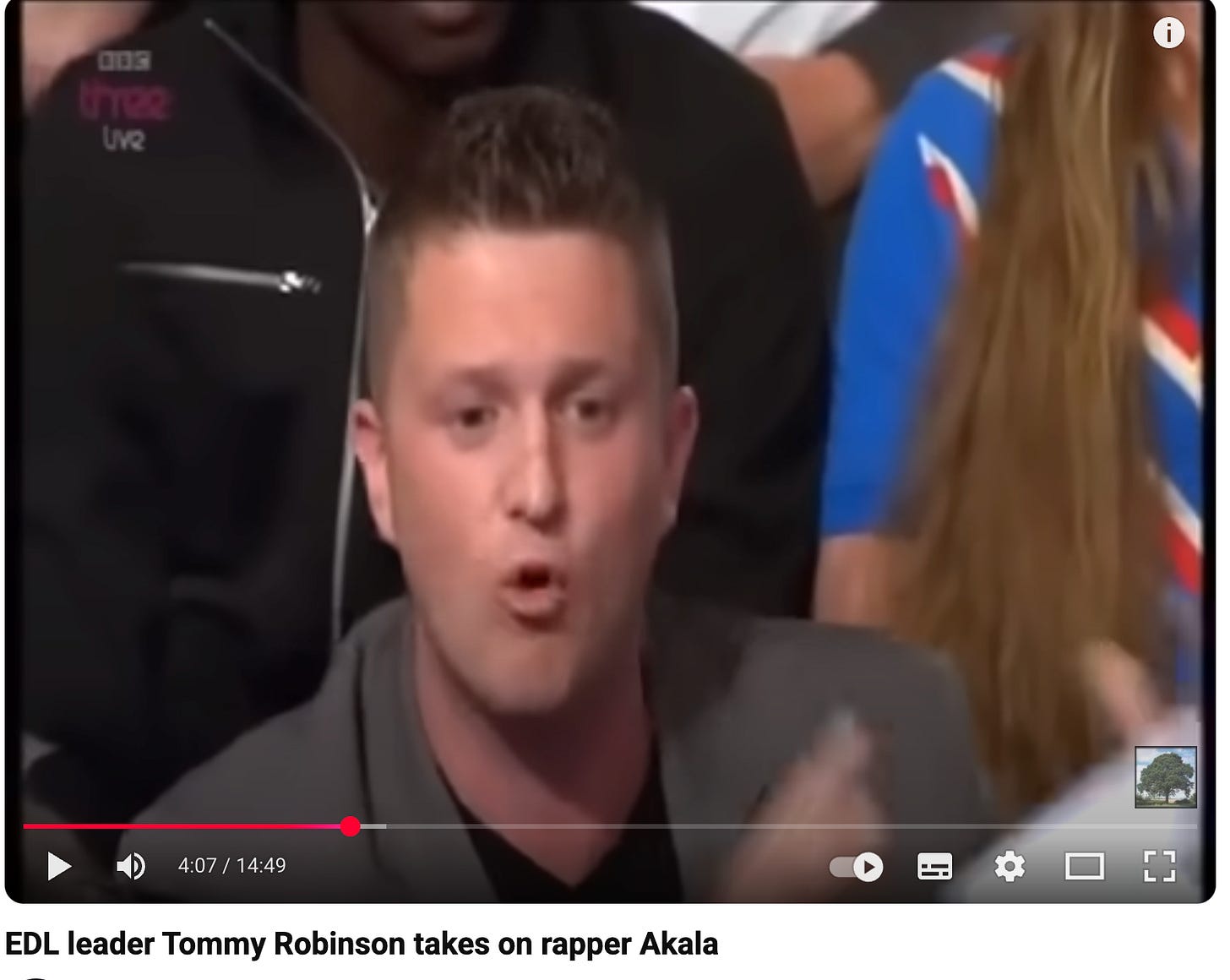Learning about nouns from Charlie Kirk
Hero, fascist, CEO and everything in between. Who was he and who are you?
Charlie Kirk was shot in a crowd. Then we watched as people tried to explain who he was in their own words. So we are going to look at which nouns were chosen to summarise this man’s 31 years. And what we can learn from these noun choices.
This isn’t a commentary on him as a person. I do not have an informed opinion. But I hope that by the end of reading this article, you’ll understand that you also probably didn’t have one. You might have an idea based on some viral clips, you might have seen some edited videos shared on the internet. But you would likely struggle to create an accurate biographical report that described him as a person.
This isn’t to say that you couldn’t describe him. You can and should. This is to say that you should also be aware of how he, or anyone past and present, is described to you.
NOTE: this is separate from understanding his impact on the world. This is purely an exercise in deciphering what a choice of noun would mean for the intended reader.
Words are not just words. They’re stories. We have to get clued up on what story is being told. Let’s investigate some of these stories.
We’ll limit this short investigation to
Kirk as per the press - feat. examples from the BBC, Sky News + Fox
Kirk as per the people - feat. some social media comments + captions
Kirk as per himself - feat. direct quotes from him + Tommy Robinson
Some other examples- feat. George Bush
I understand he was polarising.
Kirk of the press
Fox News starts us off strong with nouns “generation’s greatest”. It’s not obvious on first glance that this quote from a “massive London rally” had an equally polarising impact in the UK. But nonetheless, Fox has used this as an opportunity to fortify Kirk as an “American original”. Which is one of Fox’s other nouns.
Chosen to make the reader feel patriotic, like he was noble, and adored by all.
Let’s start the British press tour with a BBC’s choice: “influencer”.
Influencer is a word we’ve seen describe someone with a large fan base, usually quite harmless, and culturally not polarising at all. In fact, usually quite approachable and marketable.
Calling him a “conservative influencer” is indeed factual. But it’s also akin to calling Lady Gaga the Ex Creative Director for Polaroid, it’s one assessment of reality, but it’s missing a lot of nuance.
The BBC’s other choice: “activist”. Feels almost crass, because we tend to reserve this noun that to people who fight for their social mobility, or that of others. Rather than the CEO of a company of 450+ people.
Some important context is that many of the British readers will be less familiar with Kirk. So his death will be their first knowledge of his existence. So the nouns are arguably more important because they’ll form their complete idea of who he was.
So, it’s important here to note that his polarising nature isn’t made clear on the first read of any of these headlines. And most people will only read them once…
Words are stories.
I’ve been in the rooms that split hairs over choices of nouns and verbs. And the people who wrote these words know exactly what stories are being told with each word. So no word is an accident here.
Finally from the press, my favourite from Sky, “icon”. Calling someone an icon has seldom had negative connotations. And while again, it could be one reflection of reality… is it accurate and fair?
Kirk of the people
We’ll start off with “A generational hero”. A hugely emotive noun duo.
And indeed, we have to take it at face value that this is a reality for the writer of this comment. It’s a compliment and an accolade, as well as a reality. They’ve also called him a visionary, a mentor and a friend.
All nouns you would use to describe out of love and respect for a person.
We all have different heroes, so let’s glance at someone else’s list of nouns as they experienced the same Charlie.
Equally emotive list of “racist”, “transphobe” and others.
And if we’re fair, it’s true that we haven’t seen Sky or BBC refer to Kirk with any of these nouns. Despite these also being a dominant rhetoric around his polarising beliefs.
It’s important to know that these realities are both true in the imagination of the writers. So unlike the press, which is aware of the way they are painting this person, we have to assume that the writers of these messages just believe these nouns to be true of Kirk as he pertains to themselves.
Kirk of himself.
He’s called himself a Christian, and a conservative.
But we’ve all said things we don’t really mean. I’m joking. He believed them to be true so he said them. (I just wanted to keep you on your toes).
He’s openly rejected some labels that others try to put on him, like fascist or white supremacist, even Islamophobe.
We can all split hairs about what is and what isn’t Islamophobia, but the point is, despite what we would all likely agree is hateful speech towards a group, it’s clear that Kirk wouldn’t have described himself an Islamophobe.
Quick tangent
I want to draw a comparison to this and that episode of Question Time with Tommy Robinson rejecting the accusations of being a “racist”.
While this sounds funny on impact, that someone like Tommy Robinson would reject that noun, I feel it might be a pattern in this type of back and forth.
At best, the person is unaware that what they are saying has negative impact on people and is the beginning of violence. And at worst, they know and they are denying it. But for arguments’ sake, let’s say that they’re somewhere in the middle. They know that it’s taboo, but they don’t want to label themselves as this, because they are more than just a racist. They’re a multi-faceted person.
They’re also a husband, a father, etc. And Racists (as we’ve been told) are evil, mean people. This person cried when his daughter was born. So he can’t believe of himself that he’s BAD. Because racists are BAD.
Maybe it’s difficult to pick a noun for ourselves. Because we’re lots and lots of things. And picking a bad noun means we’re a bad person.
We could argue that it’s easy to overlook how our contributions impact others outside of ourselves. Even if it’s negative overall.
Back to Kirk
He likely believed he was fighting “the good fight”. But that’s not what’s going to get us to the bottom of this noun deep dive.
So, who can we learn from?
Giving a strict noun definition to the ripple of what we’ve produced by existing might fail at encapsulating the nuance of our existence.
But if the media powers that be want you to live on as a goodie, they will do their level best to ignore the potential badness that your actions caused and will avoid marring your reputation with them. So they’ll conveniently hide the negatives.
The choice of noun is indicative of the story you want to tell about the person, or the reality of how we experienced them. If we’re getting our information from sources who have a particular affinity to someone’s actions, they may hide that the person also was deeply polarising and may have also done some bad things.
A great example is Churchill.
Another example that keeps me up at night, is George Bush. There are some people who know him as a painter, and not as a war criminal. But both are true.
The point to understand here is that nuance doesn’t travel, but your discernment can.
So when you read a thing, pause. Figure out who wrote that, and why they chose those words. If the words are making you feel something, ask yourself why they would want you to feel the feelings you’re feeling in the way that you’re feeling them. Then go about your day.
It’s exhausting, it’s endless and it’s necessary for you to exist as a human right now with whole trains of thought that are genuine to the reality you experience.
*Fascist is in quotation marks because I really believe that people use it without knowing what it means, but understanding that it is meant to indicate somebody is "not nice".




